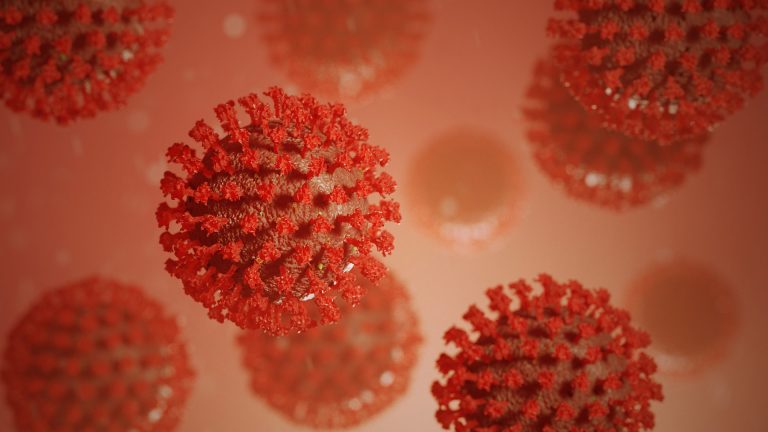The U.S. Centers for Disease Control and Prevention (CDC) recently classified the Delta variant (B.1.617.2) of the Coronavirus Disease 2019 (COVID-19) virus as a variant of concern, after the World Health Organization (WHO) made the same declaration in May. According to the CDC, the variant, first identified in India, is more transmissible than other strains.
Delta variant
In an interview with CNN, CDC Director Dr. Rochelle Walensky stated that the high transmissibility of the Delta variant would allow it to become the dominant strain in the United States. “The UK variant was more transmissible. That is now nearly 70% of the virus here… We know that the Delta variant is even more transmissible than the UK variant, and I anticipate that will be the predominant variant in the months ahead,” Walensky stated.
In a statement to NBC News, the CDC said that the Delta variant was deemed a variant of concern due to “mounting evidence” that it spreads more easily and causes more severe cases. The agency estimated that the variant made up 9.9 percent of all COVID-19 cases in America as of June 5, up from 2.7 percent for the week ending on May 22.
At a recent press conference, Dr. Mike Ryan, executive director of the WHO’s health emergencies program, said that the Delta variant has the potential “to be more lethal.” The strain is more efficient in the way it transmits between human beings and “will eventually find those vulnerable people who will become severely ill.” According to Maria Van Kerkhove, the WHO’s technical lead for Covid, the Delta variant has now spread to 92 countries.
In the UK, the Delta variant currently makes up about 60 percent of all new COVID-19 infections. In an interview with BBC Radio 4, Professor Neil Ferguson, an epidemiologist at the Imperial College London, confirmed the high transmissibility of the Delta variant.
Success
You are now signed up for our newsletter
Success
Check your email to complete sign up
“The best estimate at the moment is this variant may be 60 percent more transmissible than the Alpha (Kent) variant… There is some uncertainty around that – depending on assumptions and how you analyze the data – between about 30 and maybe even up to 100 percent more transmissible… Sixty percent is a good central estimate at the moment,” Ferguson said.
In a series of tweets, epidemiologist Eric Feigl-Ding said that the Delta variant “is roughly 2x more contagious” than the original virus. He pointed out that the COVID-19 vaccines are less effective against this variant.
Feigl-Ding said that the efficacy rate of two doses of the Pfizer-BioNTech vaccine against the Delta variant is 88 percent, compared to only 60 percent for AstraZeneca. When only one dose of the vaccine is given, the combined average efficacy rate of both vaccines is just 33 percent.
“10% of all #COVID19 hospitalizations last week were among fully vaccinated, despite >50% adults fully vaccinated in the UK—this is the #DeltaVariant, which is 99% of all United Kingdom cases… Please take #DeltaVariant seriously — it’s the fastest transmission variant known to date. Much much faster. And it has somewhat vaccine evasion, especially 1 dose, and it is much more severe (higher risk of hospitalization),” the epidemiologist tweeted.
In an interview with ABC News, CDC Director Walensky stated that she is concerned the Delta variant will mutate to a point where the current COVID-19 vaccines are ineffective.
Delta Plus variant
In India, a Delta Plus variant has emerged. Vinod Scaria, a scientist at the Institute of Genomics & Integrative Biology, told News18 that the variant can render an experimental medicine involving an antibody cocktail of Casirivimab and Imdevimab ineffective. The medicine was approved for emergency use in India. Scaria stated that the new mutation is an attempt by the virus to strengthen its evasion of the body’s immune response.
Professor Shahid Jameel said to India Today that the Delta Plus variant may be capable of evading immunity granted by earlier infections and by COVID-19 vaccines. Delta Plus not only carries all the characteristics of the Delta variant, but also has a K417N mutation.
The K417N mutation, also present in South Africa’s Beta variant, makes variants more capable of evading vaccines. Jameel added that “as of now, we have no evidence” to suggest that the Delta Plus variant is more transmissible.
Vaccine adverse event concerns
Even if the new delta variants are more transmissible or harmful, the risks of receiving the COVID-19 vaccines may not outweigh the risks. According to the CDC and Food and Drug Administration (FDA)’s Vaccine Adverse Event Reporting System (VAERS) database, 358,379 adverse event reports have been submitted after COVID-19 vaccine administration as of June 11, 2021, predominantly from the U.S.
There have been 5,993 deaths, 20,737 hospitalizations, 1,538 cases of anaphylaxis, 1,868 cases of Bell’s Palsy, 2,323 heart attacks, 1,342 cases of myocarditis or pericarditis, 1,671 cases of low platelets in the blood, and 16,275 severe allergic reactions after COVID-19 vaccine administration.
With reporting by Prakash Gogoi.















